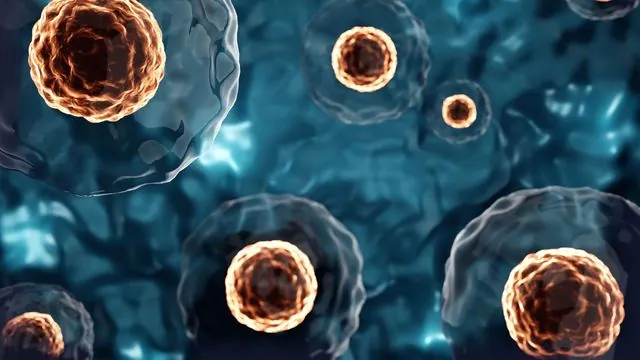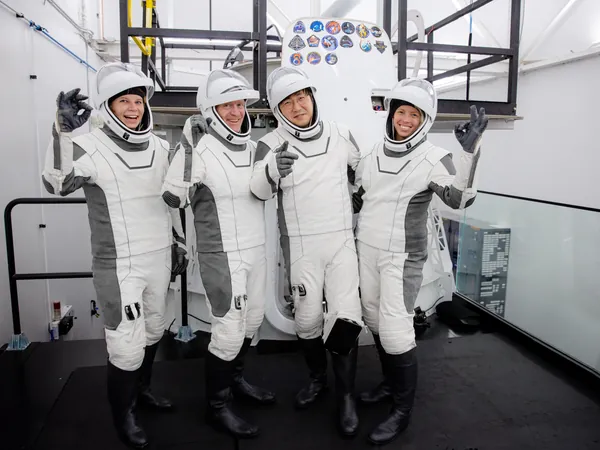
Glucose: More Than Just Sugar — The Surprising Regulator of Tissue Differentiation!
2025-03-26
Author: Sarah
More Than Just Sugar — The Surprising Regulator of Tissue Differentiation!
In a groundbreaking discovery from Stanford Medicine, researchers have revealed that glucose, the sugar that serves as the primary energy source for nearly all living cells, plays an unexpected and crucial role as a master regulator of tissue differentiation. This process is vital as it dictates how stem cells evolve into specialized cells, forming the diverse tissues that make up the human body.
Interestingly, glucose exhibits its regulatory capabilities without being broken down for energy. Instead, it remains intact and binds to proteins that govern when and how genes are expressed, making this finding both surprising and revolutionary. Paul Khavari, MD, PhD, the professor of dermatology who led the study, shared that the research team took several years to validate their results, given the astonishing nature of their findings. “At first, we just didn’t believe it,” he admitted, underscoring the significance of this discovery.
The implications of this newfound role for glucose could extend to critical areas like diabetes, where elevated blood sugar levels pose health challenges, and cancers, which are often comprised of undifferentiated cells. As diabetes affects hundreds of millions globally, understanding glucose’s dual function could pave the way for novel treatment strategies.
An Unexpected Discovery: The Role of Glucose Emerges
The research was not originally focused on glucose. Instead, Khavari and his team employed mass spectrometry combined with high-throughput screening to investigate other molecules influencing cellular differentiation in human skin stem cells as they matured into keratinocytes—the predominant cell type in the outer layer of skin. To their astonishment, glucose was found to be the second-most elevated molecule during this process, contradicting initial expectations that glucose levels would decrease.
The research showed that as cells transitioned from stem cells to differentiated keratinocytes, glucose levels did not dwindle but instead increased dramatically. This prompted a series of confirmations, using fluorescent and radioactive glucose analogs, demonstrating that glucose levels surged throughout various tissues, including fat and bone, indicating a universal role in tissue differentiation.
The Shock Factor: Not Just an Energy Source
Further analysis revealed that glucose levels increased due to heightened importation into the cells and decreased exportation. Remarkably, this elevating glucose concentration was not linked to an uptick in its breakdown into metabolic byproducts. In experiments with engineered human skin organoids, scientists found that when glucose levels dropped, differentiation was significantly impaired. This finding revealed that glucose impacts the expression of over 3,000 genes critical for skin development.
Even more surprisingly, differentiation resumed in organoids grown with glucose analogs that could not be metabolized, affirming that glucose’s role extends beyond mere energy supply.
Glucose: The Cellular Radio Signal
Khavari compared glucose’s effect to a ‘fire alarm going off in a firehouse,’ illustrating how an increase in glucose prompts a widespread response in the cell. This signaling role, previously underestimated, could alter our understanding of glucose, typically viewed solely as an energy source.
Implications for Health and Disease
The study hints that glucose has been underappreciated for its contributions to cellular functions beyond energy metabolism. For instance, embryonic stem cells lose their regenerative abilities in high glucose environments, likely due to premature differentiation, while individuals with diabetes often face delayed wound healing and impaired tissue regeneration.
Interestingly, some glucose analogs under investigation for cancer treatments may, instead of starving cancer cells of energy, promote the differentiation of immature cancer cells.
Future Directions: Unveiling More Secrets of Glucose
As researchers delve deeper, they aim to uncover how glucose interacts in both healthy and diseased cells. “This finding is a springboard for research on glucose dysregulation, which is highly relevant for cancer progression, since cancer is fundamentally a disorder of differentiation," Khavari stated.
The revelations surrounding glucose may lead to a paradigm shift in our understanding of cellular processes, encouraging scientists to re-evaluate the roles of other small biomolecules in regulating vital functions. Keep an eye on this exciting research front, as it promises to unveil more secrets about the essential sugar, glucose.



 Brasil (PT)
Brasil (PT)
 Canada (EN)
Canada (EN)
 Chile (ES)
Chile (ES)
 Česko (CS)
Česko (CS)
 대한민국 (KO)
대한민국 (KO)
 España (ES)
España (ES)
 France (FR)
France (FR)
 Hong Kong (EN)
Hong Kong (EN)
 Italia (IT)
Italia (IT)
 日本 (JA)
日本 (JA)
 Magyarország (HU)
Magyarország (HU)
 Norge (NO)
Norge (NO)
 Polska (PL)
Polska (PL)
 Schweiz (DE)
Schweiz (DE)
 Singapore (EN)
Singapore (EN)
 Sverige (SV)
Sverige (SV)
 Suomi (FI)
Suomi (FI)
 Türkiye (TR)
Türkiye (TR)
 الإمارات العربية المتحدة (AR)
الإمارات العربية المتحدة (AR)